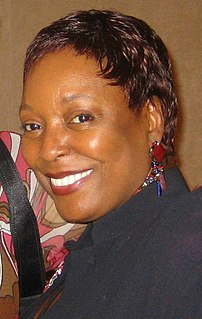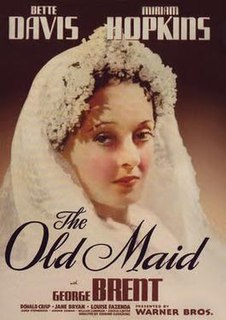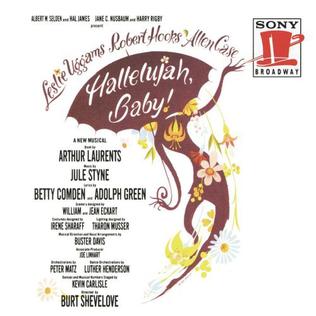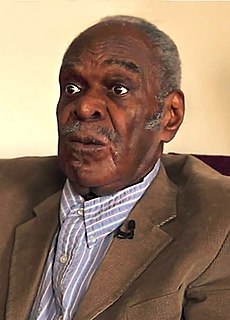Related Research Articles

Crimes of the Heart is a play by American playwright Beth Henley. It is set in Hazlehurst, Mississippi in the mid-20th century. The play won the 1981 Pulitzer Prize for Drama and was nominated for the Tony Award for Best Play. In 1986, the play was novelized and released as a book, written by Claudia Reilly.

Richard Earl Thomas is an American actor. He is best known for his leading role as budding author John-Boy Walton in the CBS drama series The Waltons for which he won an Emmy Award from two nominations and received two Golden Globe Award nominations. He also starred in the 1990 television mini-series adaptation of Stephen King's epic horror novel It and played Special Agent Frank Gaad on FX's spy thriller series The Americans.

Georgia Bright Engel was an American actress. She is best known for having played Georgette Franklin Baxter in the sitcom The Mary Tyler Moore Show from 1972 to 1977, Pat MacDougall on Everybody Loves Raymond from 2003 to 2005 and Mamie Sue on Hot in Cleveland from 2012 to 2015 She was nominated for five Primetime Emmy Awards.

Robert Hooks is an American actor, producer, and activist. Along with Douglas Turner Ward and Gerald S. Krone, he founded The Negro Ensemble Company. The Negro Ensemble Company is credited with the launch of the careers of many major black artists of all disciplines, while creating a body of performance literature over the last thirty years, providing the backbone of African-American theatrical classics. Additionally, Hooks is the sole founder of two significant black theatre companies: the D.C. Black Repertory Company, and New York's Group Theatre Workshop.

L. Scott Caldwell is an American actress perhaps best known for her roles as Deputy U.S. Marshall Erin Poole in The Fugitive (1993) and Rose on the television series Lost.
Tambourines to Glory is a gospel play with music by Langston Hughes and Jobe Huntley. It tells the story of two female street preachers who open a storefront church in Harlem. The play premiered on Broadway in 1963.

The Old Maid is a 1939 American drama film directed by Edmund Goulding. The screenplay by Casey Robinson is based on the 1935 Pulitzer Prize-winning play of the same name by Zoë Akins, which was adapted from the 1924 Edith Wharton novella The Old Maid: the Fifties.

Hallelujah, Baby! is a musical with music by Jule Styne, lyrics by Adolph Green and Betty Comden, and a book by Arthur Laurents. The show is "a chronicle of the African American struggle for equality during the [first half of the] 20th century."
A Soldier's Play is a play by American playwright Charles Fuller. Set on a US Army installation in the segregation-era South, the play is a loose adaptation of Herman Melville's novella Billy Budd, and follows the murder investigation of the Sergeant in an all-black unit. The play uses a murder mystery to explore the complicated feelings of anger and resentment that some African Americans have toward one another, and the ways in which many black Americans have absorbed white racist attitudes.
The Negro Ensemble Company (NEC) is a New York City-based theater company and workshop established in 1967 by playwright Douglas Turner Ward, producer-actor Robert Hooks, and theater manager Gerald S. Krone, with funding from the Ford Foundation. The company's focus on original works with themes based in the black experience with an international perspective created a canon of theatrical works and an audience for writers who came later, such as August Wilson, Suzan-Lori Parks, and others.
The River Niger is an award-winning play by Joseph A. Walker, first performed by New York City's Negro Ensemble Company off-Broadway in 1972. The production made its Broadway debut with a transfer to the Brooks Atkinson Theatre on 27 March 1973 for a run of 162 performances. It's a black play, meaning all characters are African American, with the titular river being a pun on the N-word.
Matt McGrath is an American actor.

Katori Hall is an American playwright, screenwriter, producer, actress, and director from Memphis, Tennessee. Hall's best known works include the hit television series P-Valley, the Tony-nominated Tina: The Tina Turner Musical, and plays such as Hurt Village, Our Lady of Kibeho, Children of Killers, The Mountaintop, and The Hot Wing King, for which she won the Pulitzer Prize for Drama.
William Chapman was an American operatic baritone and stage actor. He appeared in several Broadway productions and was notably a leading performer at the New York City Opera from 1957 through 1979.
Edmund James Cambridge Jr. was an American actor and director who was a founding member of the Negro Ensemble Company (NEC) and the Kilpatrick-Cambridge Theater Arts School.

Douglas Turner Ward was an American playwright, actor, director, and theatrical producer. He was noted for being a founder and artistic director of the Negro Ensemble Company (NEC). He was nominated for the Tony Award for Best Featured Actor in a Play in 1974 for his role in The River Niger, which he also directed.
Carl Gordon was an American actor who entered the acting profession later in life and was best known for his role in the Fox TV series Roc, in addition to a wide range of roles in film, on stage and television as a character actor.
David Anthony Stuart Atkinson was a Canadian baritone and New York Broadway actor/singer. Most of his career was spent performing in musicals and operettas in New York City from the late 1940s through the early 1970s, although he did appear in some operas and made a few television appearances. In 1952 he created the role of Sam in the world premiere of Leonard Bernstein's Trouble in Tahiti. From 1956-1962 he was a leading performer at the New York City Opera where he starred in several musicals and appeared in the world premieres of several English language operas. His greatest success on the stage came late in his career: the role of Cervantes in Man of La Mancha which he portrayed in the original Broadway production, the 1968 national tour, and in the 1972 Broadway revival.

SpongeBob SquarePants: The Broadway Musical is a stage musical, co-conceived and directed by Tina Landau with songs by various artists and a book by Kyle Jarrow. It is based on the Nickelodeon animated television series SpongeBob SquarePants and made its world premiere in June 2016 at the Oriental Theatre in Chicago. Following a month of previews, the musical opened on Broadway at the Palace Theatre in December 2017.

Significant Other is an American play written by Joshua Harmon, which premiered Off-Broadway in 2015, followed by a Broadway production at the Booth Theatre in Spring 2017.
References
- ↑ "Happy Ending/ Day of Absence Production History". Broadway World. Retrieved 17 November 2020.
- ↑ Soloski, Alexis (December 8, 2016). "Review: In 'Day of Absence,' Blacks Vanish From a Town, and Chaos Ensues". New York Times. New York. Retrieved 17 November 2020.
- ↑ Carpenter, Faedra Chatard (November 12, 2014). "Douglas Turner Ward's Play on Whiteness: Day of Absence on America's Public Stages". Coloring Whiteness: Acts of Critique in Black Performance. Ann Arbor: University of Michigan Press. ISBN 9780472072361.
- ↑ "Brotherhood/ Day of Absence Production History". Broadway World. Retrieved 17 November 2020.
- ↑ Jones, Kenneth (29 January 2009). "Day of Absence, Play That Helped Launch Negro Ensemble, Gets NYC Reading". playbill.com. Retrieved 18 November 2020.
- ↑ Hatch, James V.; Shine, Ted (March 1, 1996). Black Theatre, USA: Plays by African Americans: The Recent Period, 1935-Today. New York: Free Press. pp. 264–266. ISBN 978-0684823072.
- ↑ "Happy Ending/ Day of Absence Off-Broadway Original Cast". Broadway World. Retrieved 17 November 2020.
- ↑ Taubman, Howard (November 16, 1965). "Douglas Turner Ward's Plays at the St. Marks". New York Times. New York. Retrieved 17 November 2020.
- ↑ "Brotherhood/ Day of Absence Off-Broadway Original Cast". Broadway World. Retrieved 17 November 2020.
- ↑ Soloski, Alexis (December 8, 2016). "Review: In 'Day of Absence,' Blacks Vanish From a Town, and Chaos Ensues". New York Times. New York. Retrieved 17 November 2020.
- ↑ Catanese, Brandi Wilkins (March 2009). "Teaching A Day of Absence "at [your] own risk"". Theatre Topics. 19 (1). Retrieved 19 November 2020.
- ↑ Ward, Douglas Turner. Happy ending ; and, Day of absence; two plays. Hathi Trust: Dramatists Play Society.
- ↑ Taubman, Howard (November 16, 1965). "Douglas Turner Ward's Plays at the St. Marks". New York Times. New York. Retrieved 17 November 2020.
- ↑ Soloski, Alexis (December 8, 2016). "Review: In 'Day of Absence,' Blacks Vanish From a Town, and Chaos Ensues". New York Times. New York. Retrieved 17 November 2020.
- ↑ Horowitz, Simi (August 14–20, 2008). "Industry Insider: Ward Healer". Back Stage East. 49 (33): 9, 13. Retrieved 19 November 2020.
- ↑ "Evergreen copes with fallout, months after 'Day of Absence' sparked national debate". PBS.org. January 7, 2018. Retrieved 19 November 2020.
- ↑ Blackistone, Kevin B. (September 6, 2020). "A 'Day of Absence' was once an off-Broadway satire. NBA players brought it to life". Washington Post. Washington, D.C. Retrieved 17 November 2020.
- ↑ Sacks, Ethan (August 28, 2020). "NBA-led walkout over Jacob Blake's shooting marks evolution of protest in pro sports". NBC News. New York. Retrieved 19 November 2020.
- ↑ Jones, Kenneth (29 January 2009). "Day of Absence, Play That Helped Launch Negro Ensemble, Gets NYC Reading". playbill.com. Retrieved 18 November 2020.